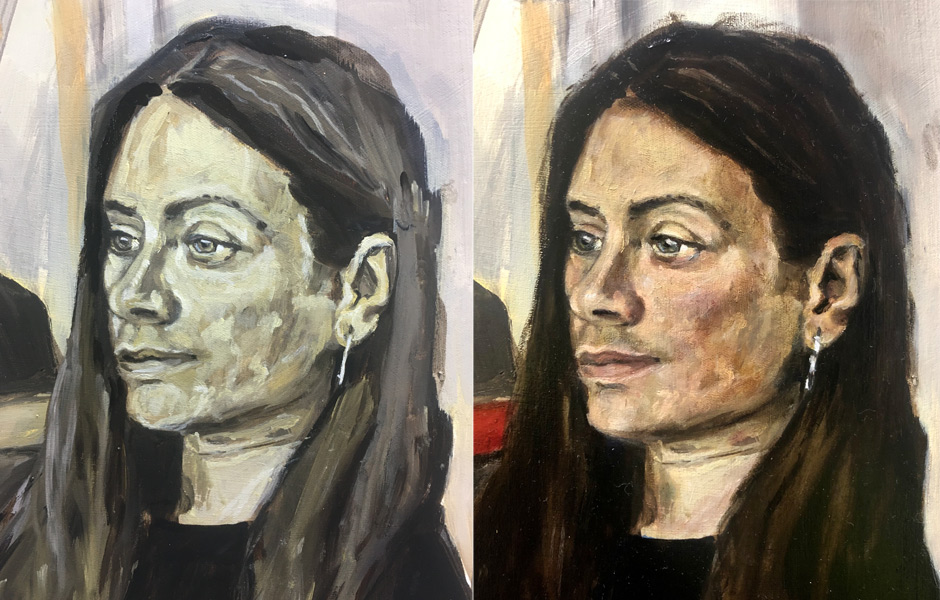Introduction
The narrative of Adam, one steeped in theological and historical significance, has warranted different interpretations across various religious traditions. In the context of the Bahá’í Faith, however, this narrative transcends mere mythological recounting, offering profound insights into the spiritual mechanics of human existence and the divine purpose behind creation. This article endeavors to elucidate a Bahá’í perspective on the story of Adam, proposing a rethought approach that appeals to the intellect and spirit alike. It posits that the Bahá’í Faith recontextualizes the tale of Adam as a multifaceted allegory rich with lessons on human development, divine guidance, and the overarching quest for unity.
Redefining Adam: Historical and Symbolic Context
In traditional narratives, Adam is often personified as the first human being, entrusted with the stewardship of Earth. The Bahá’í Faith, however, reframes Adam not solely as an individual but as a symbol representing humanity’s evolving consciousness. This expansive interpretation serves not only to amplify our understanding of spiritual evolution but also to challenge the anthropocentric view that has dominated theological thought throughout the ages. In this light, Adam can be perceived as embodying the potential for growth, development, and the awakening of the human spirit.
This conceptual shift beckons an examination of the qualities ascribed to Adam—qualities that Bahá’ís believe dwell within every individual. Traits such as creation, guardianship, and moral rectitude are refracted through the prism of divine attributes, encouraging adherents to see within themselves the innate capacity to embody these virtues. The Bahá’í teachings invite us to view Adam not as a static figure confined to the annals of religious history, but rather as a dynamic archetype engendering continuous self-improvement and societal advancement.
Humanity’s Evolution: An Allegorical Perspective
Viewing the story of Adam through an allegorical lens allows for deeper insights into the spiritual journey of humankind. The account of Adam’s inception and subsequent fall from grace may symbolize humanity’s own journey from ignorance toward enlightenment. This understanding aligns with the Bahá’í principle of progressive revelation—a concept that holds that religious truth is revealed incrementally over time, facilitating humanity’s growth in understanding and moral capability.
The narrative unfolds as curiosity enters the framework. What do the trials faced by Adam signify for individuals grappling with their paths in contemporary existence? As Adam navigated the challenges of existence in the Garden of Eden, so too are individuals today confronted with ethical dilemmas and existential choices. The Bahá’í teachings advocate for the recognition of these challenges as opportunities for spiritual maturation and personal evolution. Each decision made reflects the larger arc of humanity’s ascendance toward higher planes of understanding and community cohesion.
The Role of Knowledge and Discernment
Central to the Bahá’í interpretation is the concept of knowledge—a divinely bestowed gift that facilitates discernment between right and wrong. The story of Adam introduces the notion of choice; the moment of ‘eating from the forbidden fruit’ can be construed not purely as disobedience but rather as an essential step in humanity’s reception of divine wisdom. This act underscores the importance of knowledge and the dire need for ethical sophistication in navigating life’s complexities.
Introspection becomes imperative. In what ways does this insight into choice resonate within the context of personal decision-making today? The Bahá’í teachings emphasize that each act of discernment directs the course of one’s spiritual journey. The challenge lies in augmenting our understanding and aligning our actions with divine teachings, thus fostering personal integrity and collective betterment.
The Interconnectedness of All Humanity
Furthermore, the Bahá’í Faith posits that the narrative of Adam is intrinsically linked to the idea of interdependence among all human beings. Adam’s creation signifies the birth of humanity, heralding the responsibility of individuals to contribute to the welfare of the collective. Viewed through this lens, the Bahá’í perspective distinctly advocates for unity in diversity, beckoning humanity to transcend divisive barriers. The story encourages a collaborative approach to addressing contemporary global challenges, urging us to remember our shared lineage and collective destiny.
This paradigm shift in understanding requires a holistic approach to societal issues. The Bahá’í view implores individuals to recognize not just their personal potential, but their integral role within the grand tapestry of existence. Unity in purpose and action becomes paramount, as the well-being of one is inextricably linked to the well-being of others.
Conclusion: A Call to Reflection and Action
The Bahá’í perspective on the story of Adam invites an intellectual and spiritual renaissance, beckoning seekers to rethink the narrative along the lines of personal and collective transcendence. By viewing Adam as a paradigm for humanity, the Bahá’í teachings emphasize the significance of free will, knowledge, and the pursuit of unity in the face of diversity. Through this reimagining, individuals are challenged not only to reflect upon their own identities but to engage actively in the transformation of society as a whole.
Indeed, the tale of Adam is not merely a relic of religious scripture; it is a living narrative, pulsing with relevance and urgency. It propels individuals toward higher consciousness, fostering curiosity and expanding the horizon of possibility in every individual’s journey toward spiritual fulfillment. In rethinking the story of Adam from a Bahá’í perspective, one discerns not just the echo of ancient truths but the promise of a more harmonious future, compelling each one of us to partake in the wondrous adventure of life.
